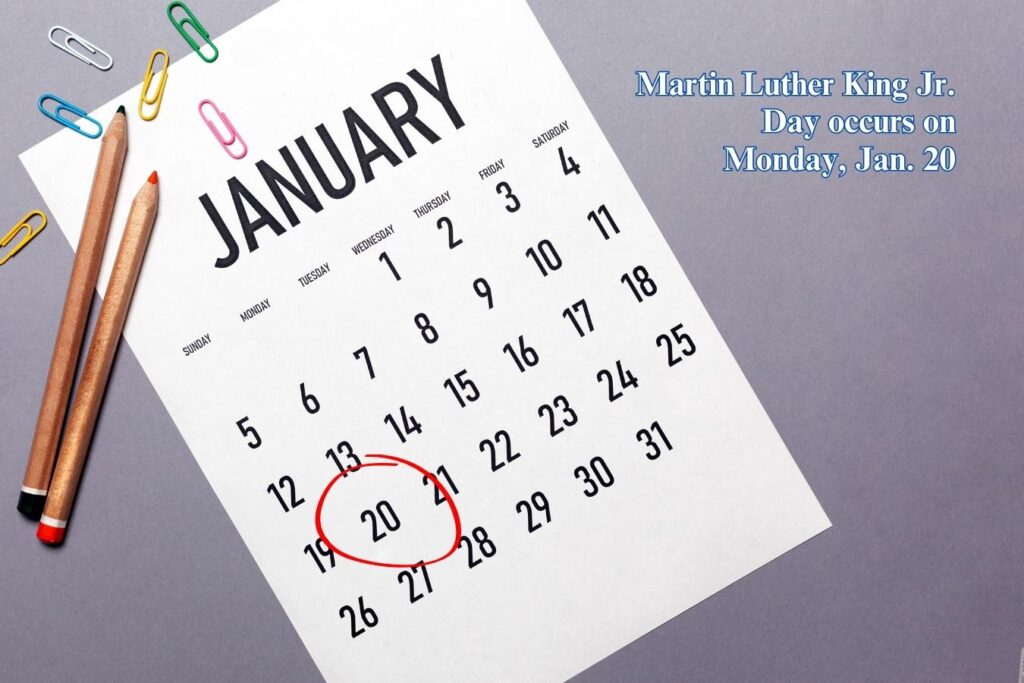Welcome to 2025! While this new year is just beginning, many of us are already looking ahead, marking calendars for upcoming holidays and planning vacations or family gatherings. Thankfully, the Office of Personnel Management (OPM) publishes a list of official federal holidays to help clarify which days will see government offices (and often banks) closed.
Beyond that, we also have religious observances like Easter and Ramadan, as well as other celebrations that might impact your personal schedule.
Here’s an in-depth look at 2025’s holidays—federal and otherwise—so you can plan your year effectively.
Federal Holiday Schedule (OPM-Listed)
According to the OPM, there are 12 federal holidays observed in 2025 across 11 calendar dates, with a special quirk due to Inauguration Day and Martin Luther King Jr. Day both falling on January 20. On federal holidays, most government offices and many financial institutions are closed.
Also Read
Here are the official dates of 2025 federal holidays:
- Wednesday, Jan. 1: New Year’s Day
- Monday, Jan. 20: Birthday of Martin Luther King, Jr.
- Monday, Jan. 20: Inauguration Day
- Monday, Feb. 17: Washington’s Birthday (Presidents Day)
- Monday, May 26: Memorial Day
- Thursday, June 19: Juneteenth National Independence Day
- Friday, July 4: Independence Day
- Monday, Sept. 1: Labor Day
- Monday, Oct. 13: Columbus Day (also observed by many as Indigenous Peoples’ Day)
- Tuesday, Nov. 11: Veterans Day
- Thursday, Nov. 27: Thanksgiving Day
- Thursday, Dec. 25: Christmas Day
Note on Inauguration Day: The 20th Amendment designates January 20 as Inauguration Day following a presidential election cycle, typically once every four years. In 2025, President-elect Donald Trump’s public swearing-in will take place that Monday, turning what is usually Martin Luther King Jr. Day into a day with dual observances.

If you live outside the Washington, D.C. area, Inauguration Day may not affect your local offices, but federal and District government operations in D.C. typically close or scale back for security and logistical reasons.
Additional Note: Day of Mourning for Jimmy Carter
Though not on the OPM list, President Joe Biden declared Jan. 9 a day of mourning in remembrance of former President Jimmy Carter, who passed away in 2024. This day will likely see certain government offices or services observe a closure or scaled-back operations. Check local news or official announcements for details, particularly if you live in or near major federal buildings.
Major Non-Federal Holidays and Observances
In addition to these “official” government-closed dates, many Americans observe a range of significant religious and cultural holidays. While they may not warrant a federal office shutdown, they’re key dates you might want to keep in mind for personal, social, or business reasons.
1. Easter
- Date: Sunday, April 20, 2025
Easter celebrates the resurrection of Jesus Christ in Christian tradition. Observances can vary across denominations, but many families attend church services in the morning, followed by gatherings or festive meals. Easter egg hunts and gift baskets are common traditions for children. Since Easter is always on a Sunday, it doesn’t affect workplace closures under federal guidelines, but some businesses or schools might be closed on Good Friday (April 18) or Easter Monday (April 21) at the local level.
2. Ramadan
- Estimated Start: Friday evening, February 28
- Estimated End: Sunday evening, March 30 (the exact date depends on the lunar calendar)
Ramadan is a holy month observed by Muslims worldwide as a period of fasting, prayer, reflection, and community. Fasting is observed daily from dawn to sunset. Dates can vary slightly based on local sightings of the moon, so it’s best to confirm within your community.
3. Passover (Pesach)
- Starts at Sundown: Saturday, April 12
- Ends at Nightfall: Sunday, April 20
This Jewish holiday commemorates the liberation of the Israelites from slavery in ancient Egypt. Passover traditions include the Seder meal, which features symbolic foods and the retelling of the Exodus story.
4. Hanukkah
- Starts at Sundown: Wednesday, December 24
- Ends at Sundown: Thursday, January 1, 2026
In 2025, Hanukkah begins on December 24, crossing into the New Year of 2026. Hanukkah, also known as the Festival of Lights, commemorates the rededication of the Second Temple in Jerusalem. Observances include lighting a menorah each evening, prayers, and traditional foods like latkes.
Other U.S. Public Holidays and Observances
- Valentine’s Day: Friday, Feb. 14
- St. Patrick’s Day: Monday, March 17
- Mardi Gras: Tuesday, March 4 (falling a bit earlier, as it always depends on the Easter cycle)
- Mother’s Day: Sunday, May 11
- Father’s Day: Sunday, June 15
- Halloween: Friday, Oct. 31
- Kwanzaa: Friday, Dec. 26, to Thursday, Jan. 1, 2026
While these occasions aren’t typically recognized by federal office closures, they hold cultural and personal significance for many. Some businesses may adjust hours or hold special promotions. Travel and tourism also see increased demand around certain dates.
The year 2025 comes packed with a variety of federal holidays, religious observances, and cultural traditions. While the OPM has earmarked 12 federal holidays, each date can hold a different meaning for people across America. Easter arrives on April 20, Ramadan stretches from late February through late March, Passover begins on April 12, and Kwanzaa overlaps with the transition into 2026. Meanwhile, the day of mourning on Jan. 9—proclaimed to honor the late President Jimmy Carter—adds another layer to the early part of the year’s schedule.
Understanding these key dates isn’t just about circle marks on a calendar; it’s also about respecting the cultural, religious, and communal fabric that makes the U.S. diverse. By planning ahead—whether for a vacation, a family gathering, or simply to navigate busy travel periods—you can avoid unwelcome surprises and make the most of each special day 2025 has to offer.






